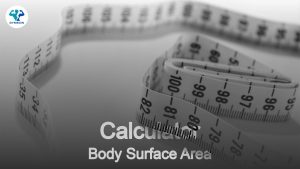Gentle stretching and hydration aid recovery, while ice packs and foam rolling can reduce soreness. Incorporating rest and proper nutrition also promotes muscle healing.
We’ve all been there—after a tough workout, your muscles feel like they’ve been through a blender. Whether you’re a gym rat or just starting your fitness journey, dealing with sore muscles can be a real pain. But don’t worry! There are plenty of ways to help ease that soreness and get you back to feeling like yourself. Let’s dive into what helps sore muscles after a workout.
Understanding Muscle Soreness
What Causes Muscle Soreness?
Muscle soreness, often called delayed onset muscle soreness (DOMS), usually kicks in 24 to 48 hours after a workout. It happens when you push your muscles harder than they’re used to, like trying a new exercise or increasing your weights. Tiny tears form in your muscle fibers, and that’s what leads to the soreness. It’s a sign that your muscles are adapting and getting stronger, but it can be uncomfortable!
Types of Muscle Soreness
- Acute Soreness: This is the soreness you feel right after your workout. It usually goes away within a few hours.
- Delayed Onset Muscle Soreness (DOMS): This is the soreness that hits a day or two later. It can last for several days, depending on how hard you worked out.
Tips to Relieve Sore Muscles
1. Stay Hydrated
Drinking water is super important, especially after a workout. When you’re dehydrated, your muscles can cramp up and feel even more sore. Aim for at least 8-10 glasses of water a day, and consider adding electrolytes if you’ve had a particularly sweaty session.
2. Get Moving
It might sound counterintuitive, but light activity can actually help reduce soreness. Think of it like this: when you’re sore, your muscles are tight. Gentle movements like walking, cycling, or even yoga can help get the blood flowing and ease that tightness. Just don’t overdo it—keep it light!
3. Stretch It Out
Stretching after your workout can help prevent stiffness. Focus on the muscles you worked, holding each stretch for about 15-30 seconds. This can help improve flexibility and reduce soreness. Just remember to listen to your body—if it hurts, ease up!
4. Use Heat and Cold Therapy
Heat and cold can work wonders for sore muscles. Here’s how:
- Cold Therapy: Applying ice packs for 15-20 minutes can help reduce inflammation and numb the soreness. This is especially helpful right after a tough workout.
- Heat Therapy: After the first couple of days, switch to heat. A warm bath, heating pad, or warm towel can help relax tight muscles and improve blood flow.
5. Massage It Out
Getting a massage can be a game-changer for sore muscles. It helps increase blood flow and can reduce tension. If you can’t get to a professional, try using a foam roller or a massage ball at home. Just roll it over the sore spots to help release tension.
6. Rest and Recover
Your muscles need time to heal, so don’t skip out on rest days. Make sure you’re getting enough sleep, too—aim for 7-9 hours a night. Sleep is when your body does a lot of its healing, so don’t underestimate its importance!
7. Nutrition Matters
What you eat can play a big role in how quickly you recover. Here are some tips:
- Protein: After a workout, your muscles need protein to repair. Think chicken, fish, beans, or protein shakes.
- Antioxidants: Foods like berries, nuts, and leafy greens can help reduce inflammation.
- Omega-3 Fatty Acids: These can help with muscle soreness, so consider adding fish or flaxseeds to your diet.
8. Over-the-Counter Pain Relief
If the soreness is really bothering you, over-the-counter pain relievers like ibuprofen or acetaminophen can help. Just be sure to follow the recommended dosage and check with a doctor if you have any concerns.
When to See a Doctor
While soreness is normal, there are times when you should seek medical advice. If you experience severe pain, swelling, or if the soreness doesn’t improve after a week, it’s best to consult a healthcare professional. You might have an injury that needs attention.
FAQs About Sore Muscles
How long does muscle soreness last?
Muscle soreness can last anywhere from a couple of days to a week, depending on how intense your workout was and how well you take care of your body afterward.
Is it okay to work out with sore muscles?
It’s generally okay to work out with sore muscles, but listen to your body. If the soreness is mild, light activity can help.




